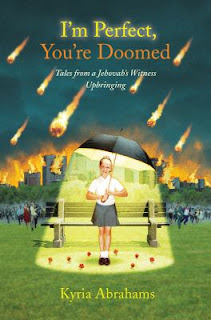Reviewed by Kristin
Genealogy was the first word which caught my eye on the
cover of this book. The background
picture is unassuming, a short, aged, ivory dress, such as one which might be
worn to a baptism or a bat mitzvah.
Opening the cover, I read that the author, Dani Shapiro, had a big surprise
when she decided to have her DNA tested as part of an ancestry kit. Her unusual blonde hair, blue eyes, and fair
complexion had never quite fit in with her dark haired Jewish family, and
suddenly those features seemed a lot more significant. Only about half of her DNA pointed to being
Eastern European Ashkenazi, (Jewish,) so what about the other half?
Shapiro made this personally earth-shattering discovery in
2016, in the modern era when DNA testing is rather commonplace, and where the
internet is a treasure trove of information if you just know where to
look. Very quickly, Shapiro was able to
figure out the bare bones of how she came to be, and even found a YouTube video
of the man she suspected was her biological father. Suddenly, her life was turned upside
down. If the father she had always known
was not related to her genetically, how had this come about?
Within a surprisingly short period of time, Shapiro was able
to reach out to a man who she had so much in common with and yet had never
known. Treading lightly, she began to
explore the possibilities of forging a connection with the man who played a
tiny part in her creation, while still holding tight to the family heritage
which had encompassed her very being from the moment of her birth.
Shapiro’s parents had both passed away. Searching for clues in remembered
conversations was one way that she tried to understand what her parents had
gone through five decades earlier. A box
of papers in the basement provided some clues and also sparked memories of the
uneasy relationship she had with her mother over the years. Seeking peace and answers, Shapiro continued
talking to family members and friends.
The discovery brought her closer to some, but created distance with
others.
Shapiro has written several other memoirs and works of
fiction, often focusing on the intimacy of family relationships. This memoir explores family identity, larger
ethnic distinctiveness, and the human capacity for love.



